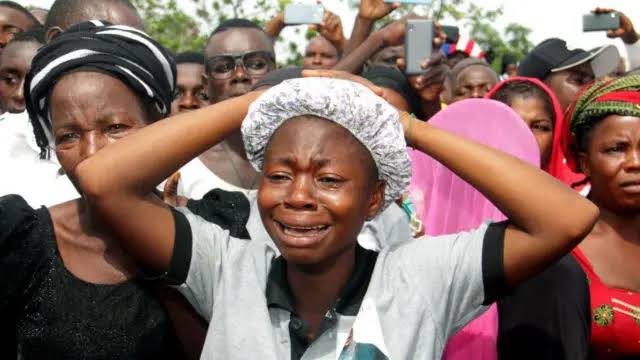On the night of June 13, 2025, suspected Fulani herdsmen launched coordinated attacks on multiple communities in Benue State, Nigeria, resulting in over 100 feared deaths. The assaults targeted villages in Gwer West and Apa Local Government Areas (LGAs), leaving residents devastated by loss of life, property destruction, and displacement. Local sources report that the attackers struck under cover of darkness, using sophisticated weapons to maximize casualties and spread terror.
The attacks primarily affected the Tse-Antswam community in Naka, the headquarters of Gwer West LGA, and the Edikwu and Ankpali communities in Apa LGA. Eyewitnesses stated that dozens of assailants arrived around 7:00 p.m., catching residents unprepared as many were in their homes. The violence involved indiscriminate shooting and machete attacks, with women and children among the victims.
Community leader Patrick Modoom confirmed at least 17 bodies were recovered in Tse-Antswam, while Apa LGA lawmaker Abu Umoru reported 16 confirmed deaths in Edikwu and Ankpali, with many still missing. The destruction extended to homes, food stores, and farmlands, which were set ablaze, threatening food security in the region. In Tse-Antswam, located near the LGEA primary school and the Federal Government Dam project, the attack compromised Naka’s status as a safe haven for those fleeing violence in other parts of Gwer West.
The Youths Association of Kula, Tse-Orbiam, and Agagbe condemned the failure of security forces to protect villagers, noting that 14 of Gwer West’s 15 council wards have now been affected by herdsmen attacks. They called for a community-based security outfit, citing the ineffectiveness of military and police responses. Residents expressed frustration over the delayed response of security forces, with one lawmaker noting it took two hours for operatives to arrive.
Benue State Governor Hyacinth Alia, through his Chief Press Secretary Tersoo Kula, expressed sorrow and pledged to strengthen joint security operations and intelligence-sharing. Deputy Governor Barrister Sam Ode, who visited the affected areas on June 15, 2025, emphasized ongoing community dialogues to restore peace. However, local leaders argue that these measures have yet to curb the recurring violence.
The attacks reflect a broader pattern of conflict in Benue, often linked to disputes between Fulani herdsmen and local farmers over land and grazing rights. Similar incidents include the 2023 attack in Kwande LGA, where over 50 were killed, and the 2021 massacre in Odugbeho village, Agatu LGA, with over 30 deaths. Former Vice President Atiku Abubakar condemned the latest violence, urging a comprehensive approach to address underlying issues like land disputes and ethnic tensions.
The Benue State Police Command confirmed the attacks and deployed tactical squads to restore normalcy, but logistical challenges have hindered timely responses. Major General Musa Danmadami, Director of Defence Media Operations, previously described the situation as a “lingering issue” driven by reprisal attacks, calling for a holistic solution. Thousands have been displaced, seeking refuge in schools and neighboring communities, with the destruction of farmlands exacerbating the humanitarian crisis.
Human rights advocate Ukan Kurugh called the attacks “deeply disturbing,” highlighting the impunity of the assailants. Social media posts from residents, such as Akawe Francis, who lost his brother Monday Dooden in the Naka attack, reflect personal tragedies. Francis noted his family had fled to Naka over a decade ago to escape earlier attacks, only to face renewed violence.
Governor Alia’s administration has promised enhanced security measures, but local youths argue these efforts are insufficient. The call for community-based security reflects distrust in federal and state forces, which are often overstretched. Previous attacks, such as the April 2025 assault on Otobi-Akpa in Otukpo LGA, where several were killed, underscore the need for sustainable solutions.
Criticism has also been directed at the federal government, with some questioning President Bola Tinubu’s absence during recent attacks. The presidency stated that Tinubu had issued directives to security chiefs, but public skepticism persists. The bishops of Benue have decried the destruction of homes and churches, calling for urgent federal intervention.




